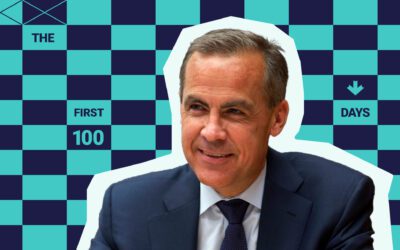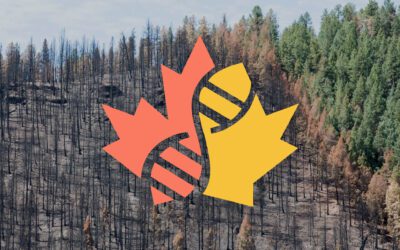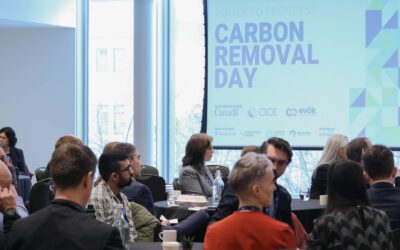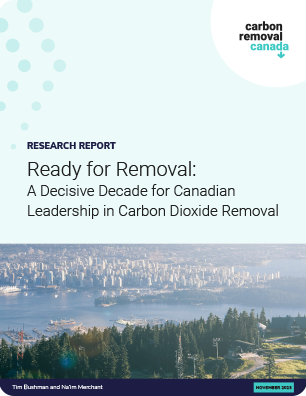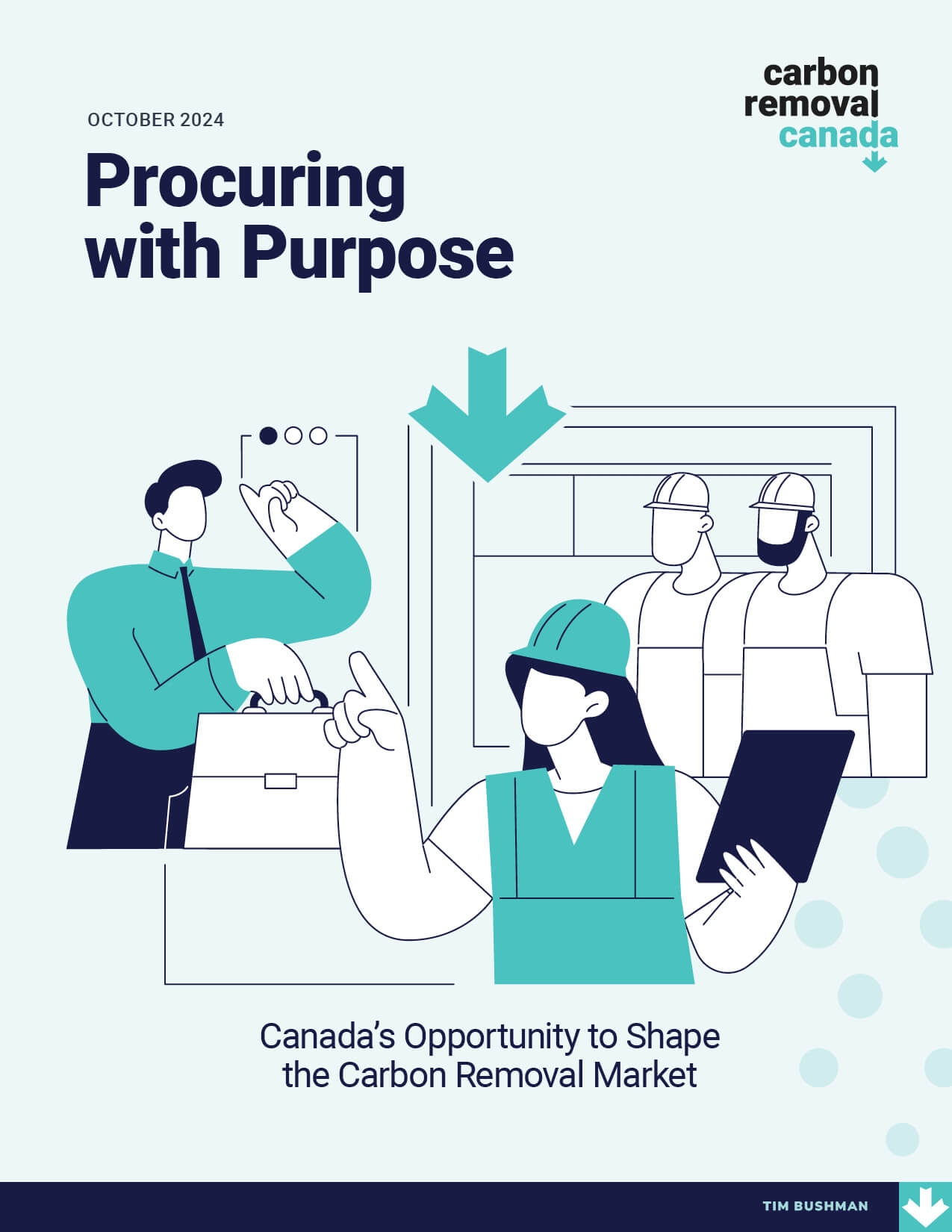We held our first ever workshop on September 12 of this year, co-hosted with Rise Consulting and in partnership with Elemental Excelerator, B.C. Centre for Innovation and Clean Energy (CICE), and the Centre for Climate and Business Solutions at UBC Sauder.
The event, Centering Indigenous Leadership & Community Voices, brought Indigenous leaders, community members, and industry experts together in conversation to explore what defining responsible & respectful carbon removal deployment should look like. Panels and presentations covered topics from Indigenous leadership in carbon removal, to opportunities for collaboration and relationship building, to learnings from community-engaged projects.
On the evening before the workshop, Moontide Reconciliation facilitated a Kairos Blanket Exercise. The exercise invites participants to learn about the history of Indigenous and non-Indigenous peoples’ nation-to-nation relationship in Canada, and gain a deeper understanding of how colonization’s effects continue to this day.
On the day of the workshop, Chief Harvey McLeod of Upper Nicola Band set the tone of the day by prompting attendees to situate themselves amongst their relationships with land and people in their lives. Along with the Kairos Blanket Exercise, participants started the event considering how their worldviews affect the way they make decisions on a daily basis.
Overall, throughout the jam-packed day, attendees listened to four presentations and three panels before breaking out into groups to tackle case studies on how best to approach meaningful community engagement. Participants were engaged, posing thoughtful questions and contributing actively to the workshop discussions.
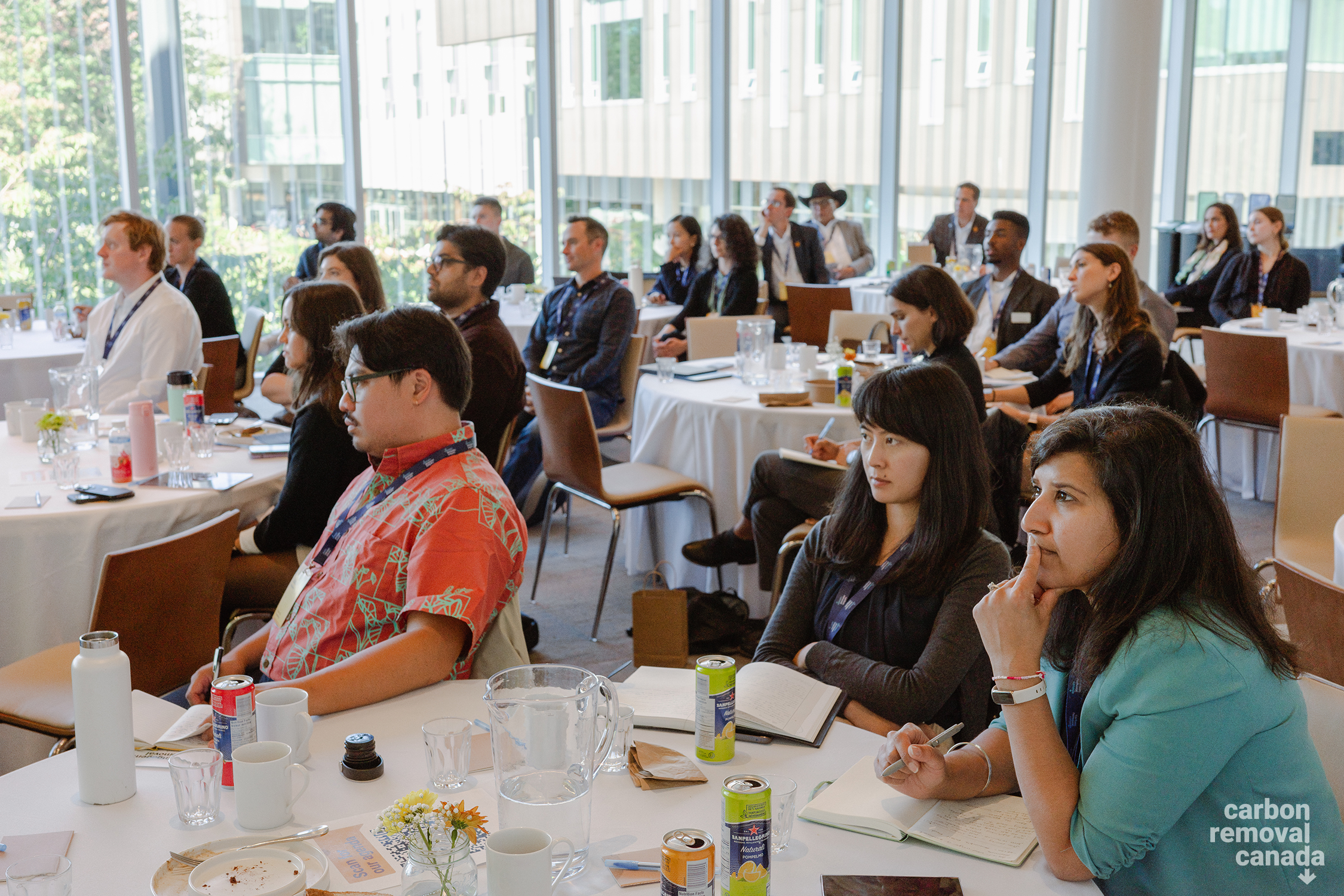
Four key messages stood out.
1. Do your research and check capacity before you approach
Carbon removal developers must take time to consider who their projects might affect. Indigenous communities are not all the same, and it is critical to understand cultural differences and historical context before reaching out – particularly when it comes to those who have historically been most affected and least consulted by settler corporations.
The first panel of the day, moderated by Na’im Merchant (Carbon Removal Canada) and featuring Sara Nawaz (Institute for Responsible Carbon Removal, American University), Francesca Hillery (Partnerships for Tribal Carbon Solutions), and Vanessa Suarez (Carbon180),focused on environmental justice and Indigenous leadership They emphasized that while carbon removal can be an act of reparative justice, it is not inherently so; it is the developer’s responsibility to assess a community’s interest and capacity to participate in a project before initiating outreach.
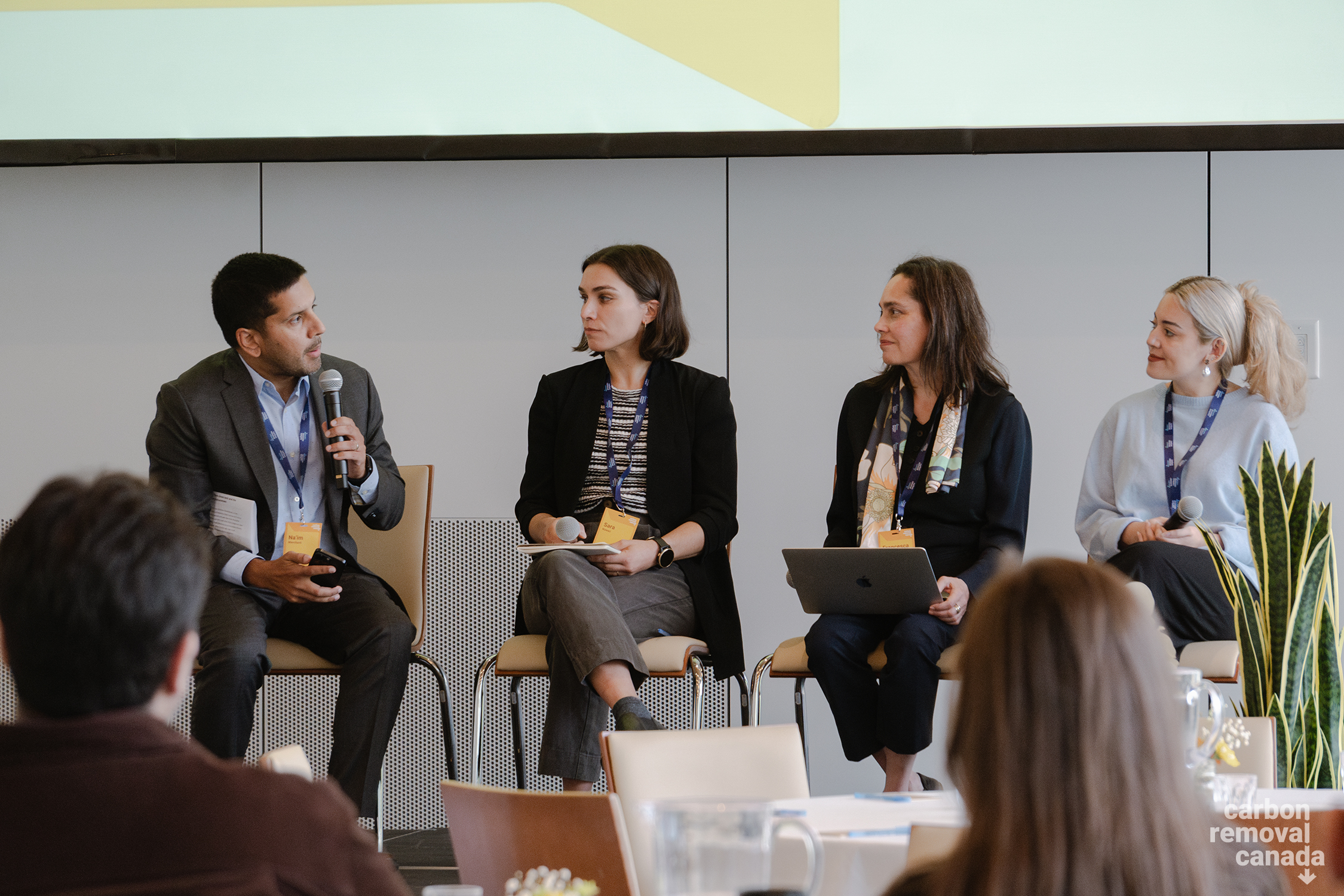
2. Enter conversations with respect
In her presentation, Patti Derbyshire (Rise Consulting) offered simple advice for approaching Indigenous leadership: meetings should not be rushed, and should be leader to leader.
Sean Lowrie (Arca) and Jesse McCormick (First Nations Major Project Coalition), in a panel moderated by Derbyshire, spoke on the theme of building relationships with Indigenous communities. They discussed the importance of leadership buy-in so that companies new to engagement ensure leadership is emotionally and financially prepared for all aspects of community engagement, including revenue sharing and continued community relations. Additionally, they noted that frequent changes in company leadership can hinder buy-in, highlighting the need for companies to also prioritize the well-being of their own staff.
Furthermore, Darrell Brown (Kisik Clean Energy) emphasized in his presentation that meaningful community engagement requires concerted efforts to genuinely listen to feedback. People need a reason to attend engagement sessions and organizers should consider when potential participants are actually available to attend. For example, holding an event during the work day in a primarily working neighbourhood would only demonstrate to a community that their opinions do not matter to the event organizers.
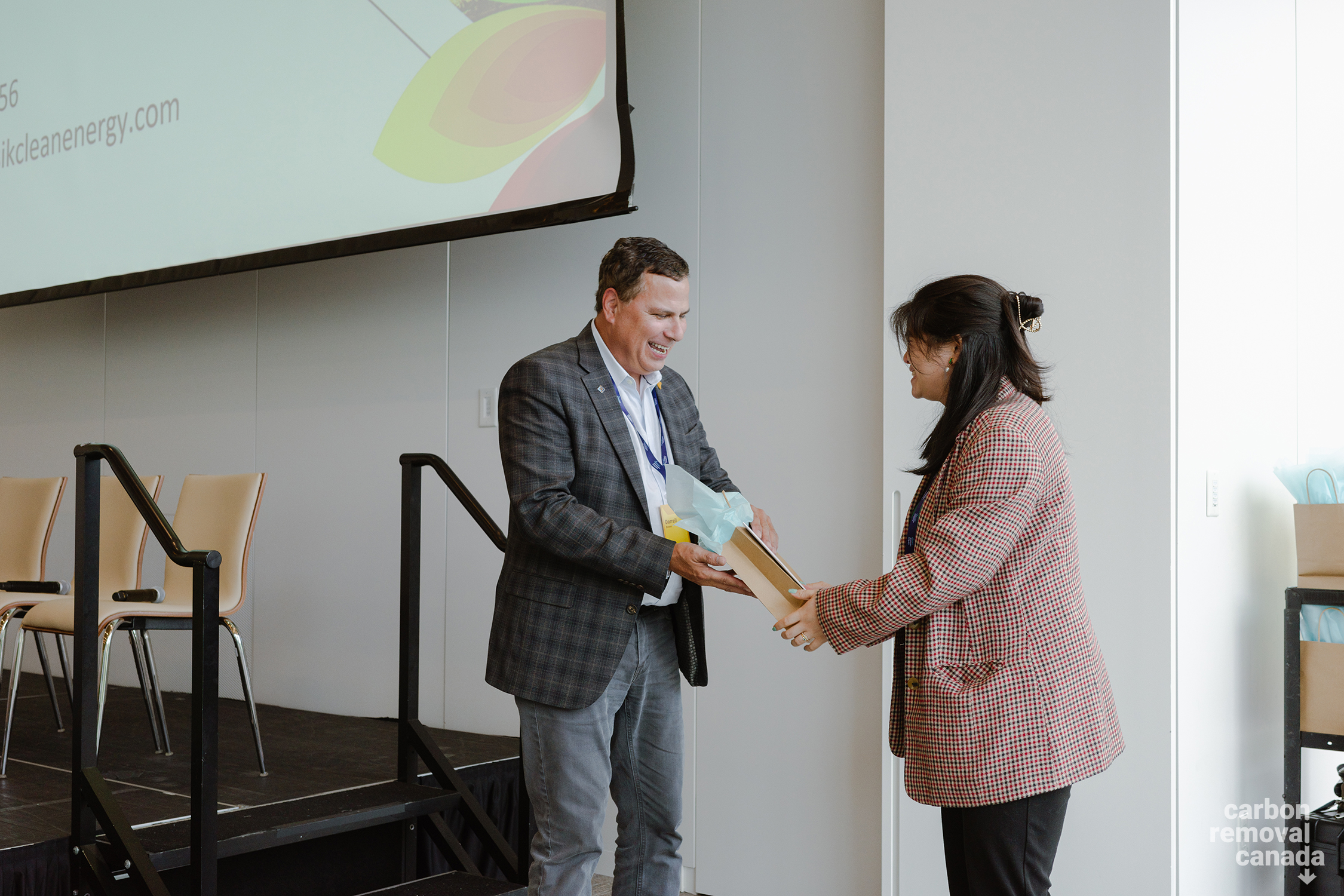
3. Don’t go into a discussion with an expected outcome
Relationships take time to build and it is highly unlikely that one conversation will lead to the go-ahead for a project. Different speakers throughout the day shared examples of companies that truly listened to feedback and took the time to step back, build relationships, and re-evaluate their plans in response.
In his presentation, Ken Paul (Pokiok Associates) highlighted the necessity of building trust with communities by conducting studies in partnership with them. He emphasized that when companies collaborate with community members, projects are not only more trusted but also tend to be more effective, as the community’s deep knowledge of the local landscape contributes to better outcomes.
Overall, project developers should go into conversations knowing they might not hear what they wanted. Their ideas might be rejected, they might be sent back with revisions, timelines will shift – and knowing all those results are a possibility, is the meaning of engagement.
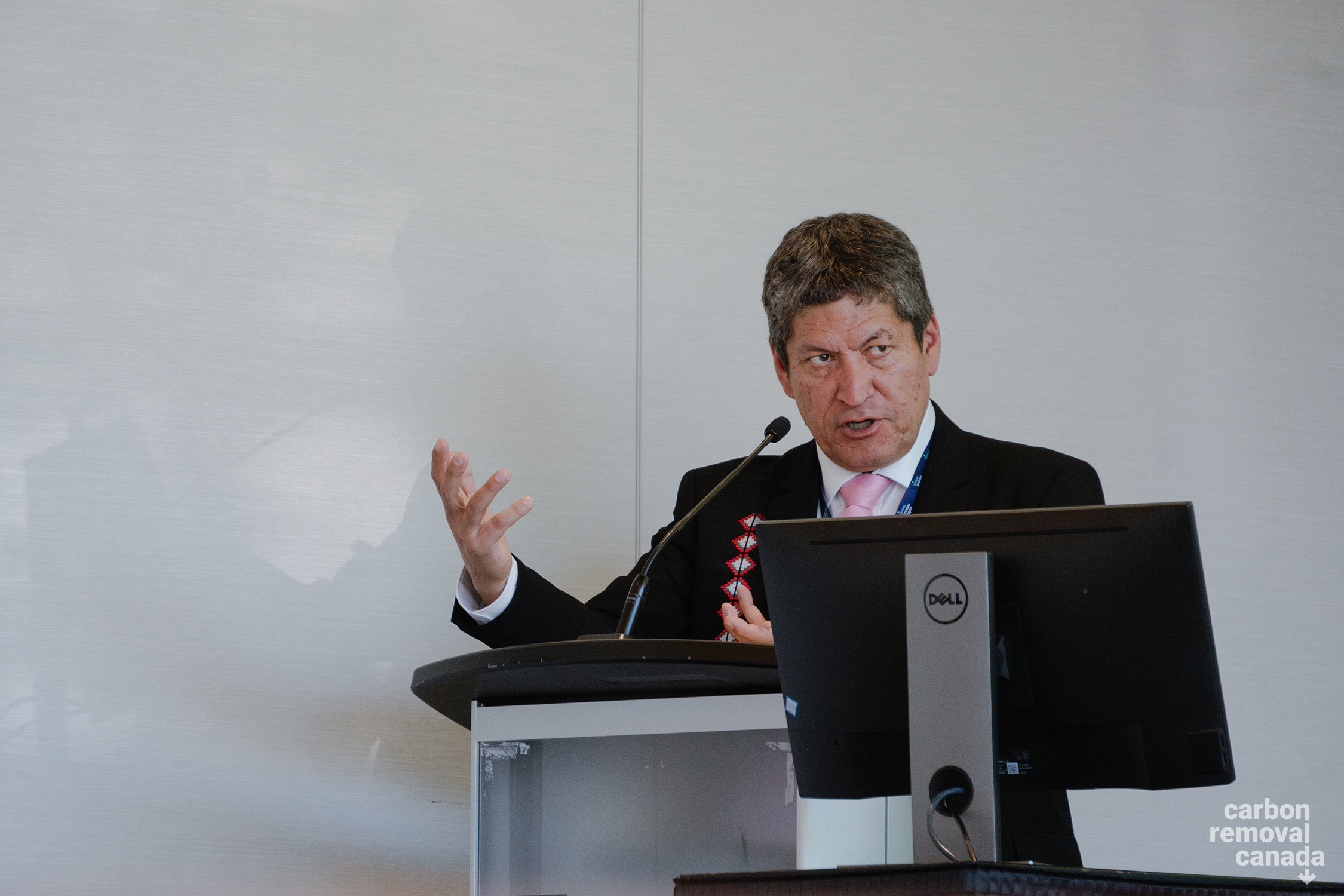
4. Real partnership and sovereignty are essential
A recurring theme emphasized by most speakers is the imperative need for equity. Building relationships is just part of the process. The end goal is really sovereignty for Indigenous partners. Chantelle Carden (B.C. Centre for Innovation and Clean Energy) moderated a panel with Rob Napoli (Cascadia Seaweed Corp), Mike Kelland (Planetary), and Thomas Storwick (Coastal Carbon), where the group spoke on progress and learnings in their community-engaged projects. They highlighted a common challenge: while companies express a desire for Indigenous-led carbon removal initiatives, they often hesitate to make the necessary financial commitments.
During their panel, as well as in AJ Bird’s (Bird & McCrimmon) presentation, the need for increased financial support for nature-based permanent carbon removal solutions, such as biochar, was emphasized. Indigenous leadership already exists in many of these methods, and settler companies should consider invitation-based partnership beyond just looking to cold outreach.
Ultimately, consultation means little to nothing if there is no financial equity or if there are no Indigenous decision-makers involved in the project.
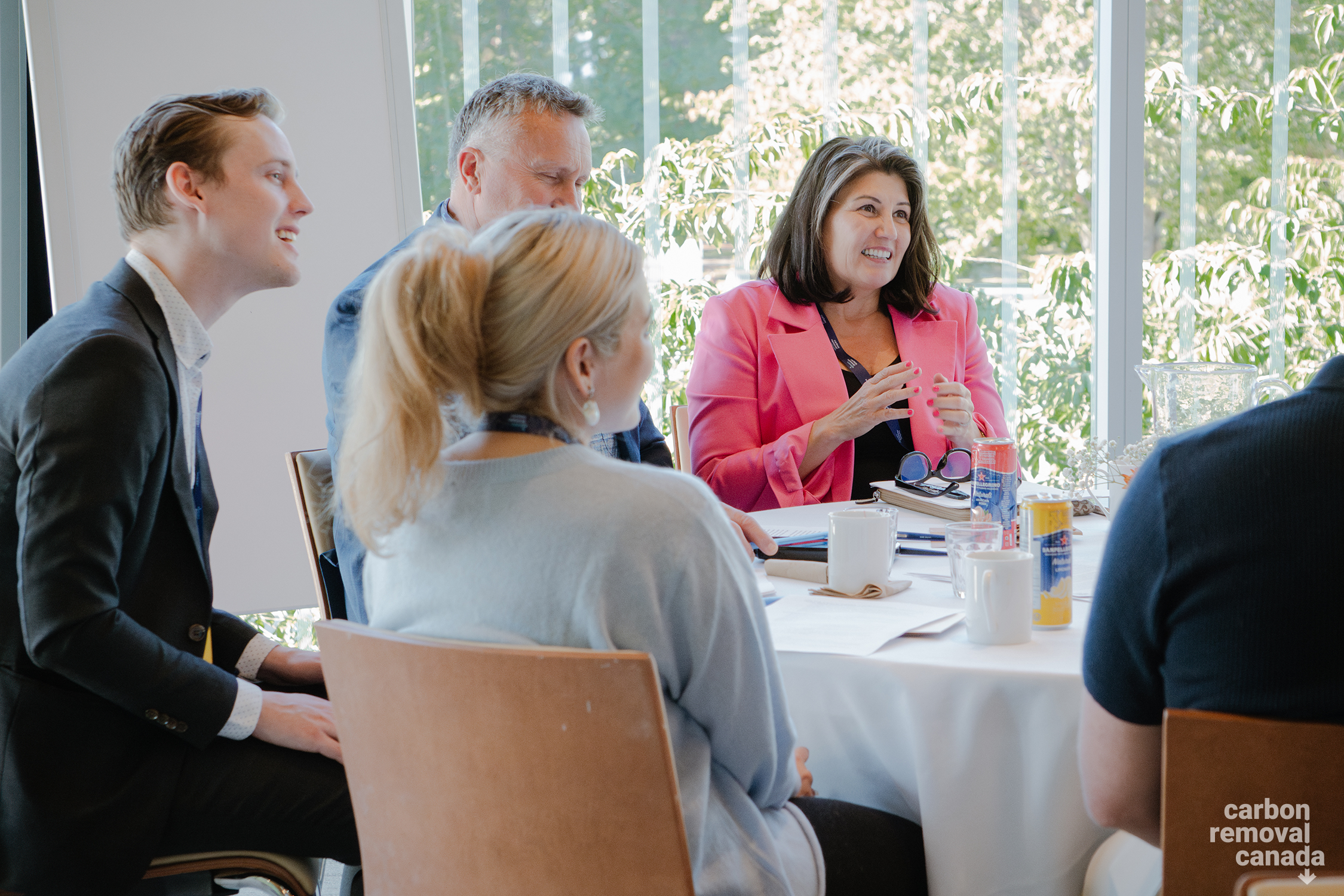
What’s next?
While we don’t have all the answers, this workshop provided a valuable space for meaningful conversations, deeper understanding, and shared learning. The discussions highlighted the importance of Indigenous leadership, community engagement, and genuine collaboration in shaping a responsible and inclusive carbon removal industry. As we move forward, we will capture the key insights from the day in a report and turn these learnings into ideas for building a more respectful and equitable path forward. Events like this remind us that progress comes from listening, partnership, and a commitment to shared success.
